Today is our second day in Edinburgh and it promises to be a
busy one. After a quick breakfast in the
hotel, we met at 8:30 to board the coach, meet our local guide, Emily. Edinburgh is a great capital city since the
15th century, it covers about 46 square miles, and has a population
of about 500,000. Home of the University
of Edinburgh, founded in the 16th century, it is the home of many
famous authors from Sir Walter Scott to
J.K.Rowling, and inventors and philosophers from Alexander Graham Bell to David
Hume, along with popular culture stars Ian Anderson from Jethro Tull and Sean
Connery from James Bond. There is even a
famous Skye Terrier, Greenbriar’s Bobby that supposed guarded his 19th
century masters grave for 14 years, until his own death.
The city is mostly split into the Medieval Old Town and the
Georgian New Town, with the Edinburgh Castle, Holyrood Palace and the Royal
Mile located in the Old Town, and the more modern business and residential areas
located in the New Town. Edinburgh is an
expensive city, noted as a banking center, a tourism center, and home to
several international companies.
Our first hour this morning, we spent on the bus touring
mostly around New Town, and parts of the University of Edinburgh. Emily explained much of the history of
Edinburgh, its troubled history with England, and the modern Edinburgh place in
the world. Our tour ended around 10:00AM
at the Edinburgh Castle, where we got off the bus where she brought us into the
castle grounds and left us to do our own exploration.
The castle is still a working military
installation with active army barracks contained within. There is also a “One O’Clock Gun” that fires
a traditional cannon shot every day at 1:00PM, used in the past for ship’s
navigators to synchronize their time.
The courtyard opens onto three main buildings, the kings
residence that now houses the Scottish Crown Jewels and a museum of the former
kings residence. Unfortunately, we
couldn’t take photographs in the residence, but we could in the second building
containing the great meeting hall. The
third building is a war memorial for the first world war and contains a series
of books that contains all the names of the 8000 Scottish soldiers killed in
World War I. These books are on display,
and cannot be handled by the public, but if you have the name of someone killed
in WW1, the staff will open the book to show the entry. This exhibit could also not be photographed.
After visiting the three main buildings, we moved on to some
of the surrounding buildings, including St Margaret's chapel first built in the
12th century that can still be booked for weddings for the bride and
groom and up to 10 guests for a cost of only 60,000 pounds.
What a deal!
There is also a war museum containing war artifacts from medieval times
to WW2. Fortunately, pictures were not a
problem in the war museum. Due to the
castle’s central and high location in Edinburgh, there are also some spectacular
views of the surrounding areas.
After exploring the Edinburgh castle grounds, we met outside
in an area called Grassmarket, which used to be the central marketplace for
Edinburgh in the 15th century, it now houses a bunch of pubs,
restaurants and specialty shops. Here we
met back up with Emily for a walking tour of Old Town Edinburgh. Emily took us down some of the main
thoroughfares and into some of the small alleyways called “closes” that led between the buildings to courtyards
for adjacent buildings. She told us
stories of what life was like in medieval Edinburgh, where chamber pots were
emptied out windows onto unsuspecting passersby, and where rich people lived
above the ground floors to minimize the stench.
Most of the city is built from honey sandstone which has lasted for
hundreds of years, but is soft and porous.
For this reason, most of the buildings are dark stained with some almost
completely black from the soot of coal fires within the buildings for heat and
the exhaust of the steam locomotives.
Unfortunately, the sandstone is too porous and fragile for conventional
cleaning methods to clean the soot without damaging the sandstone. Hopefully, someday a method can be devised to
restore the sandstone back to its original glory.
After finishing the walking tour, we were brought to the
Maggie Dickson's Pub for our choice of drink.
The pub is named for Maggie Dickson, an 18th century woman
who , under suspicious circumstances, was hanged for the death of her newborn
child. Her pregnancy had been concealed,
and it is unclear whether the child was stillborn or died soon after birth, but
she was ultimately charged, convicted, and hanged. The story goes that the mortician
transporting the body back from the hanging saw the cover to the coffin move,
and discovered that Maggie Dickson was not dead.
At the time the court thought it wouldn’t be
right to hang her a second time, so she was released to live another 40 years
and give birth to several healthy children.
We left Maggie Dickson's about 1:00PM for some free time to
explore the shops in the area, especially on nearby Victoria St until 2:30 when
we were to return for a bus ride down to Holyrood Palace. Some of our fellow travelers went off in
search of lunch, but we decided to enjoy our typical power lunch of Coke Zero
and Gelato, except this time it was Pepsi Max and Gelato. We found a nice little gelato shop at
Grassmarket, a a little salted caramel gelato really hit the spot. We didn’t find much in the way of souvenirs,
but Jody did find a nice little flower necklace made by a local artist that she
really liked.
At 2:30, we got back on the bus for a 10 minute ride down to
Holyrood Palace, a local residence for when King Charles visits Edinburgh. The official residence is, of course, closed
to the public, but some of the historical portions including the bed chambers
of Mary Queen of Scots and the room where her secretary and suspected lover,
David Rizzio, was murdered.
None of the
interior was able to be photographed, but outside are also the ruins of the
Holyrood Abbey which was built in the 12th century but fell into
ruins after the Protestant Reformation and the Holyrood Palace gardens which
were beautiful.
After finishing the Holyrood Palace tour, we were left to
walk back to the hotel, and made our final trip up the Royal Mile where I
finally found a good t-shirt. Our final
destination tonight is for dinner, this time at the Scotsman Grand Café, within
walking distance of the hotel. The food
was delicious with carrot and lentil soup, baked corley fish, and sticky toffy
with butterscotch for dessert.
Tomorrow, we leave at 8:00AM as we head north to Inverness
and the next chapter in our adventure.

 Edinburgh, Scotland, United Kingdom
Edinburgh, Scotland, United Kingdom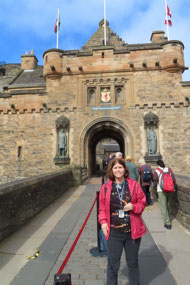
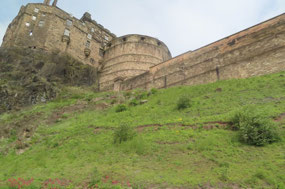
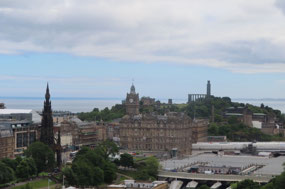
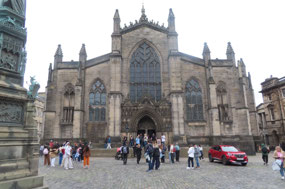
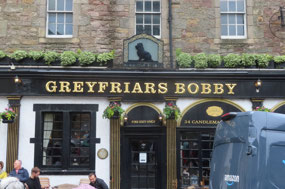
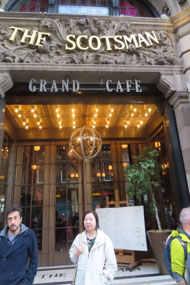


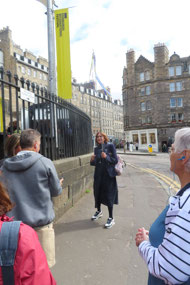
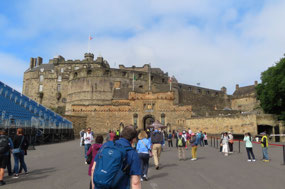
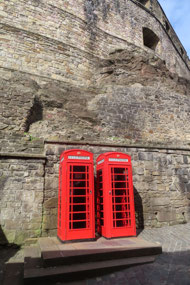
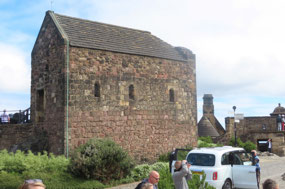
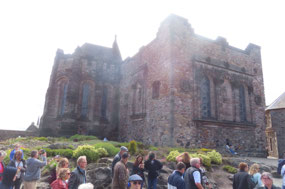
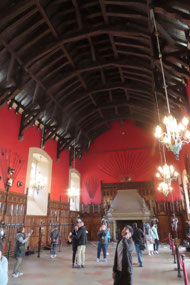
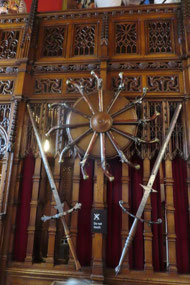
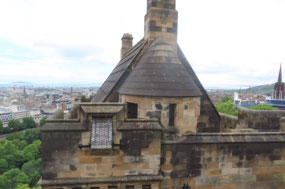
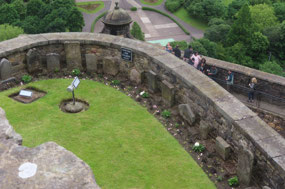
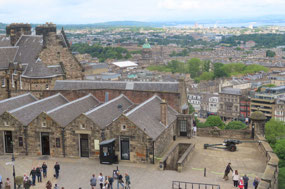
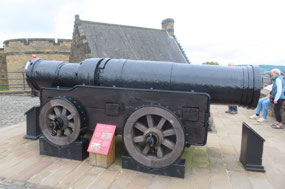
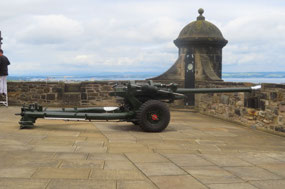
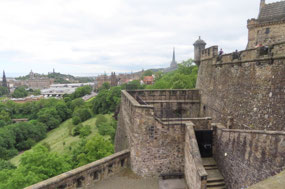
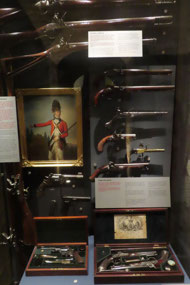
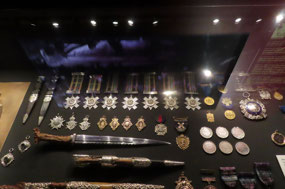
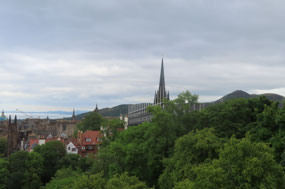
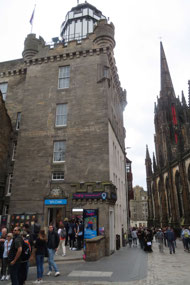
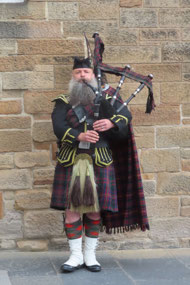
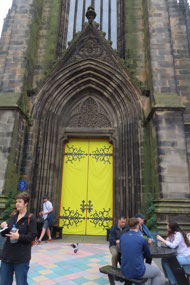
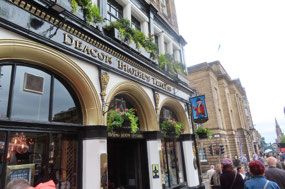
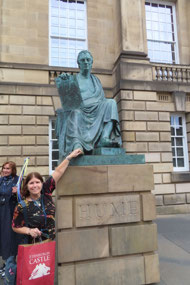
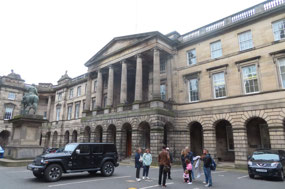
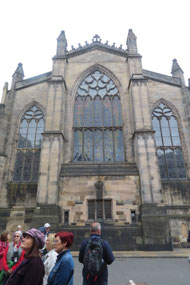
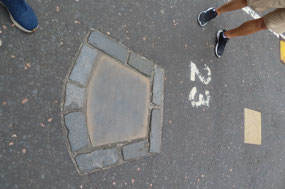
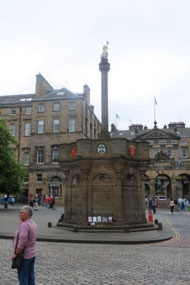
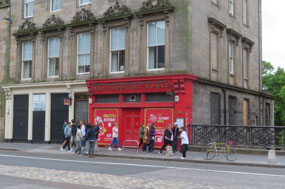
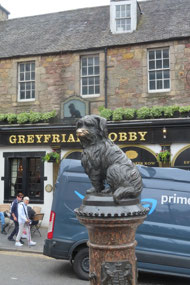
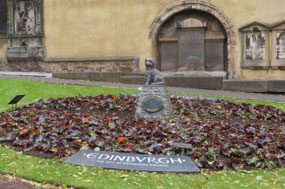
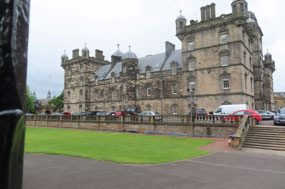
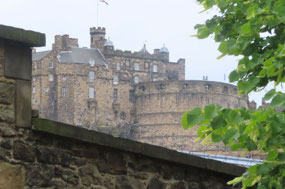
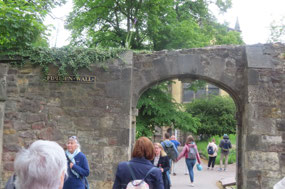
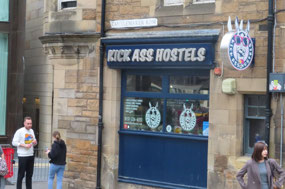
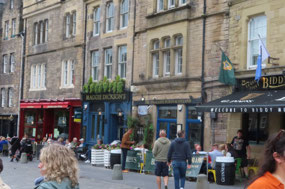
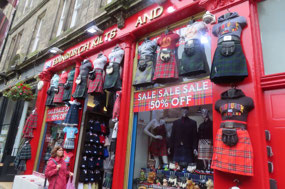
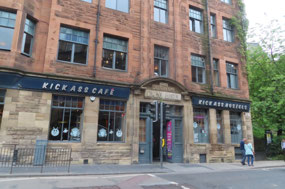
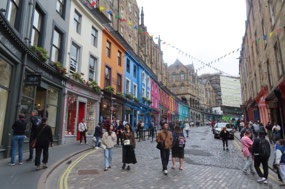
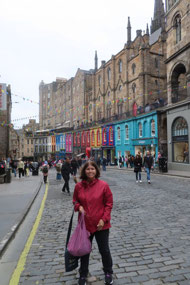
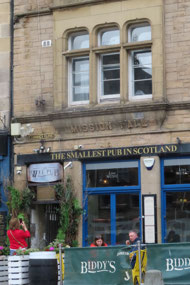
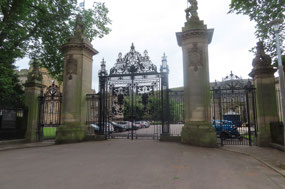
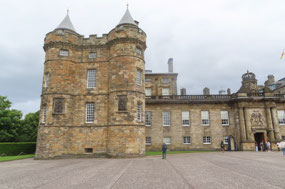
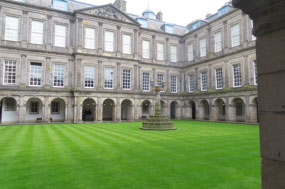
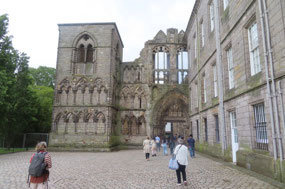
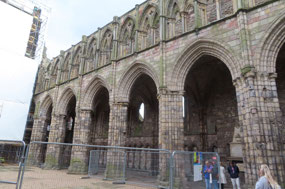
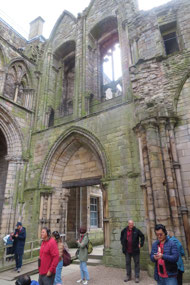
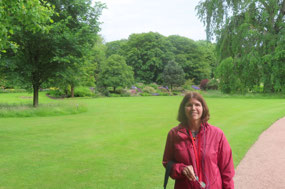
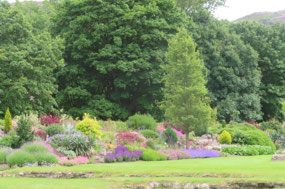
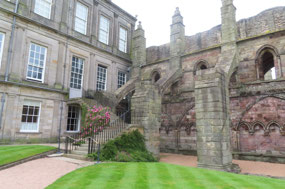
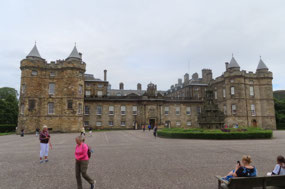
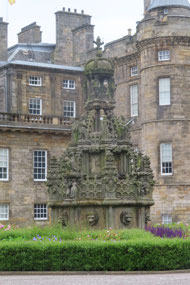
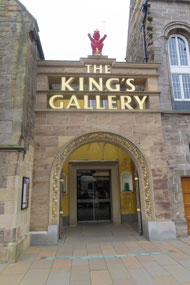
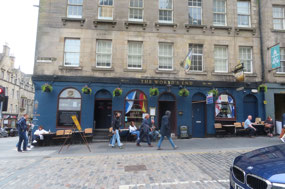
2025-05-22